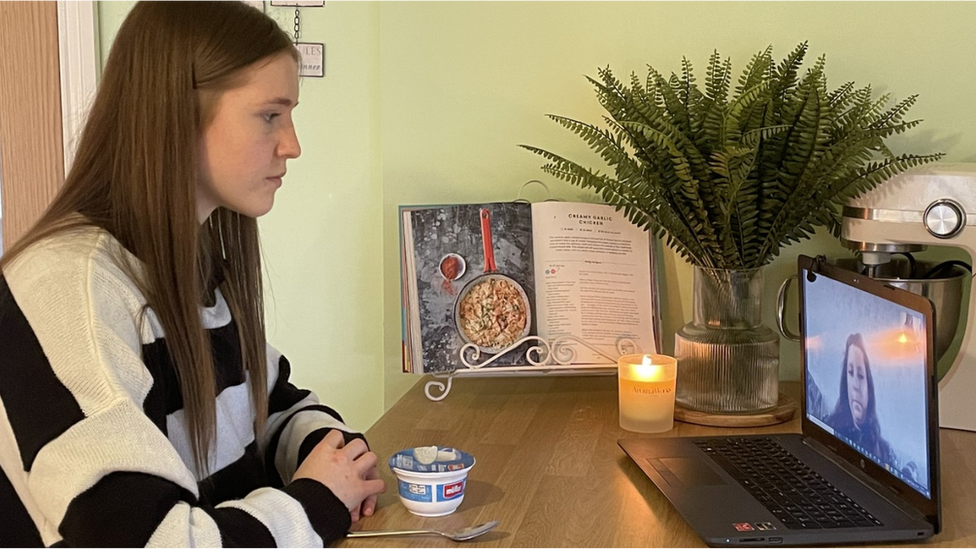Woman with anorexia 'had to get worse to get help'
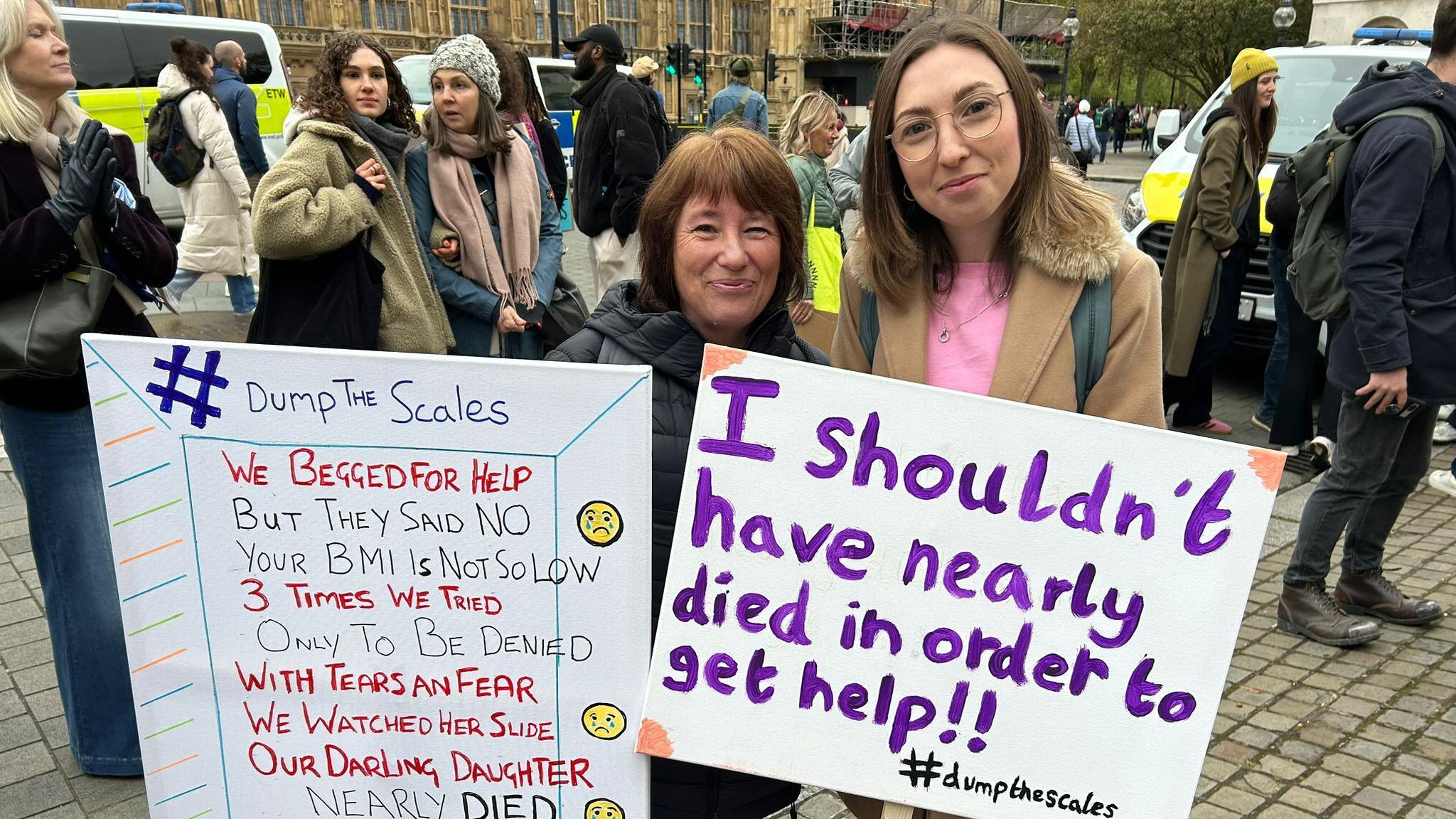
Rheanna Hazel and her mum marched to demand better access for eating disorder support
- Published
A woman who is recovering from anorexia is urging health services to review their criteria for eating disorder support.
Rheanna Hazel, 28, from Worle, near Weston-super-Mare, said she could not access the support she needed because she weighed too much.
"The sole focus is on getting the weight back and the mental support is left behind," she said.
Claire Reynolds, from eating disorder charity Beat, added: "Unfortunately this story is not unique. The guidelines are very clear that body mass index (BMI) should not be used as a single measurement."
Ms Hazel said she believes a lot of GP practices are using outdated guidelines - which were set in 2004 and include a specific BMI - to decide whether to refer someone with an eating disorder to get support.
At the time she was in need, she weighed above the recommended level and this led to her losing more weight before ending up in hospital.
'Early support vital'
"It triggered something in my head that I had to get worse to get help," she said.
The charity Beat, together with the National Institute for Health and Care Excellence (NICE), have released updated guidelines, which state that a BMI should not figure into the decision for support.
Ms Reynolds said: "The guidelines are very clear that BMI should not be used as a single measurement."
But she said there is "mass inconsistency in the way this is applied".
"It's a mental health condition, not a physical condition," Ms Reynolds said.
"It's vital that people get early support."
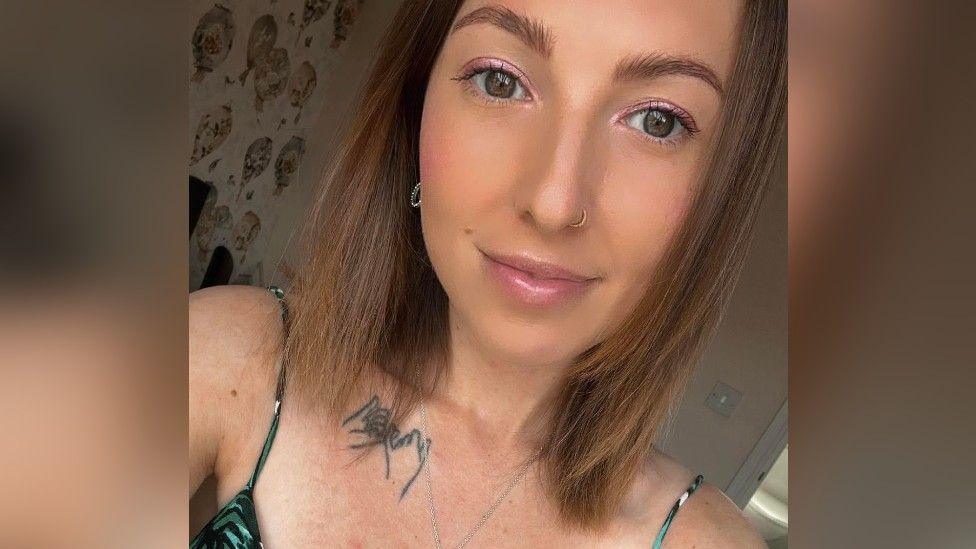
Ms Hazel said she used food to control her emotions
Speaking to BBC Radio Bristol, Ms Hazel said she had always had a good relationship with food when she was growing up, but when she turned 17 another girl at school had started calling her fat.
"I was severely bullied," she said.
"If I was having toast for breakfast in morning break she would make comments saying, 'you're always eating, you're so fat'.
"I'm not saying it was the cause for my eating disorder developing, but it was obviously a trigger."
She said the bullying "fed into feelings of worthlessness".
"It was years of constant nit-picking, and because I was such a shy person I never stood up for myself," she added.
'Nobody understood'
Ms Hazel said she asked for help from school councillors and her parents, but she said nobody really understood what she needed.
She had started to use food to control how she felt, at a time when she felt she lacked control in other parts of her life.
She ended up undergoing intensive outpatient therapy and also decided to leave sixth form and study acting at college.
"I had a few years in my 20s where I was fine, I would consider myself fully recovered," she said.
But in December 2021 she relapsed.
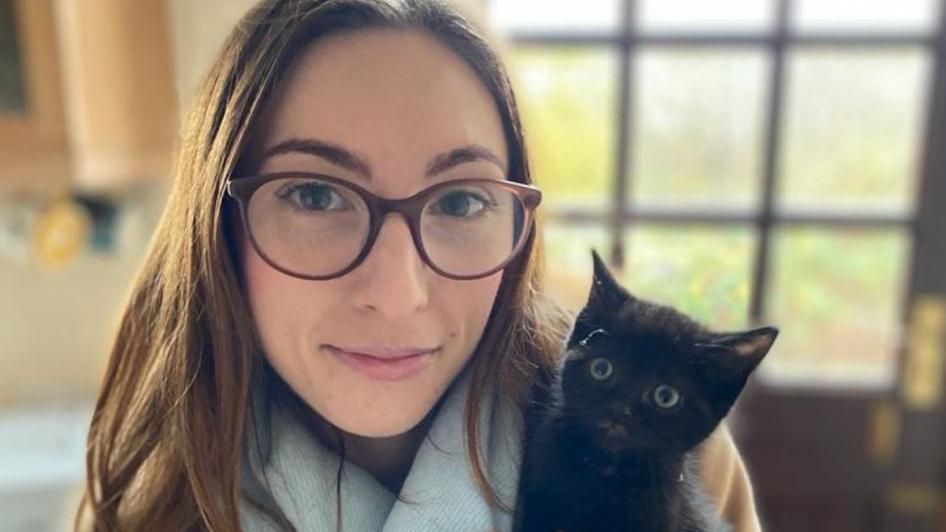
Ms Hazel is now studying to become a nurse, inspired by her own stay in hospital
'Not unique'
At this point Ms Hazel and her family reached out for help from their GP, but said they were told her BMI did not meet the threshold for a referral.
The current NICE guidelines state: "Do not use single measures such as BMI or duration of illness to determine whether to offer treatment for an eating disorder."
Her mum, Amanda Hazel, said they had "begged for help", but were told "no" on three separate occasions, adding they were left to watch as her daughter nearly died.
In January last year Ms Hazel was rushed into hospital. She was put on an intravenous drip, and eventually had to have a tube inserted for food.
She was sectioned for six months.
At this stage, because her BMI had dropped, she now met the threshold for help.
Ms Reynolds said this was not a unique story.
"Some people have to get more ill before they get treated," she added.
Ms Hazel is now studying to become a nurse, inspired by her own stay in hospital.
While she is eating meals and maintaining her weight, she added she had to fight thoughts linked to her anorexia every day.
"I want to go on and use my experience so I can go and say 'I do understand'," she said.
NICE is not commenting at this time, due to the upcoming UK General Election.
The current NICE guidelines state: "Do not use single measures such as BMI or duration of illness to determine whether to offer treatment for an eating disorder."
Follow BBC Bristol on Facebook, external, X, external and Instagram, external. Send your story ideas to us on email or via WhatsApp on 0800 313 4630.
Related topics
- Published1 April 2024
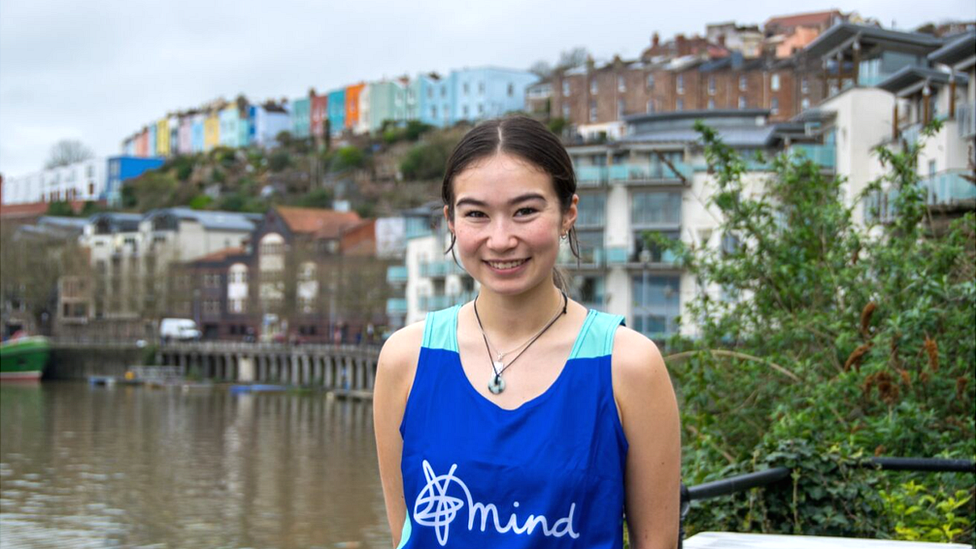
- Published26 February 2023
